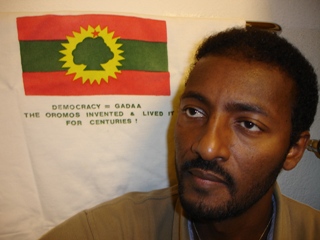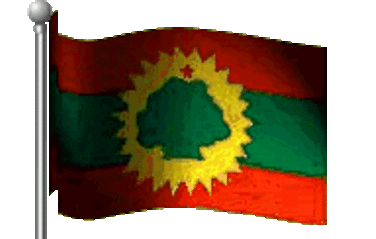The United Nations High Commissioner for Human Rights, Louise Arbour, statmente in Ethiopia
The United Nations High Commissioner for Human Rights, Louise Arbour, has asked for the speedy conclusion of an investigation into the killing of at least 60 people in Ethiopia during violence related to national elections in 2005.
"I have raised this issue with the government officials. I pressed to have the report as soon as possible. It is particularly important in light of the opening of the trials [of those] charged with very serious crimes following the May [2005] national election in Ethiopia," said Arbour, who was on a three-day visit to the Horn of Africa country, during which she met, among others, Prime Minister Meles Zenawi, senior government officials and members of the opposition.
Arbour also expressed concern over the arrest of several of the country's opposition leaders. She particularly pointed to issues regarding the nature of the charges against them, questions of bail and the expected trial of more than 100 officials of the main opposition party and journalists.
"At the same time, we will all be looking with great interest at the findings of the commission of inquiry, in particular regarding the use of excessive force against people in the country," she said.
A commission of inquiry was established in January 2006 to investigate the killing and property damage that resulted from violence in June and November in and outside Addis Ababa following elections in May 2005. The commission is comprised of members from various civic organisations and associations, and is expected to release its report by the end of May.
"I am concerned that the persons in detention, including some of the individuals whom I met at the prison, under the current legislation in Ethiopia, do not have access to bail," she added. "They don't even have an opportunity to individually put their case before the court, which is one of the criteria upon which bail has to be granted."
The Ethiopian constitution guarantees the right to bail, but provides that court may deny bail in exceptional circumstances, which Arbour said was "a concern" to her office. She was able to meet with six detainees from the opposition at a prison some 10 km east of Addis Ababa.
Arbour also expressed concern about the charge of genocide: "I have had personal experience as a chief prosecutor for the international tribunals in Yugoslavia and Rwanda. I assure you that these are extremely complex and difficult charges to articulate in law, extremely difficult to document on the basis of evidence and they require lengthy and complex trials to be brought to conclusion."
Following her meeting with Meles, Arbour said she was confident that some collective measures would be taken by the government in the legal framework to address some of these issues.
"The prime minister was very attentive. I think he certainly fully understood my concerns, which does not mean that he shared my perspective on all these issues," she said. "I did not expect any immediate response, but I am persuaded that it will get the attention that it deserves."
source: IRIN



0 Comments:
Post a Comment
<< Home